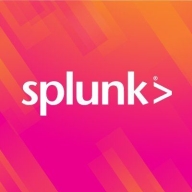

SenSage AP and Splunk Enterprise Security are major players in security information and event management. Splunk often has the upper hand due to its extensive features and scalability, making it popular for those needing comprehensive analytics despite its higher cost.
Features: SenSage AP offers real-time data analysis, efficient querying capabilities, and strong compliance management. Splunk Enterprise Security provides advanced threat detection, customizable dashboards, and high-level integration capabilities. Splunk's comprehensive feature set is advantageous for detailed threat analysis.
Ease of Deployment and Customer Service: SenSage AP is known for its easy deployment process and responsive customer service, ensuring quick implementation with minimal disruption. Splunk offers various deployment options and requires more expertise but provides extensive documentation and support. SenSage AP offers smoother initial setup, while Splunk supports ongoing needs with robust support channels.
Pricing and ROI: SenSage AP is cost-effective with lower setup costs and focuses on quick ROI through affordable solutions. Splunk Enterprise Security has a higher initial investment, often justified by comprehensive analytics and long-term benefits. Organizations seeking immediate cost savings may lean towards SenSage AP, while those looking for advanced features might choose Splunk despite the higher pricing.

Ignite’s SenSage AP is anEvent Data Warehouse (EDW) that enables advanced data analysis, detailed forensics and ad hoc investigations on a wide variety of data formats at very large scale. As an EDW designed specifically for event data, it collects and stores more data, from more sources, over longer periods of time – years or even decades – so that you can conduct faster, more sophisticated analytics.
Splunk Enterprise Security is widely used for security operations, including threat detection, incident response, and log monitoring. It centralizes log management, offers security analytics, and ensures compliance, enhancing the overall security posture of organizations.
Companies leverage Splunk Enterprise Security to monitor endpoints, networks, and users, detecting anomalies, brute force attacks, and unauthorized access. They use it for fraud detection, machine learning, and real-time alerts within their SOCs. The platform enhances visibility and correlates data from multiple sources to identify security threats efficiently. Key features include comprehensive dashboards, excellent reporting capabilities, robust log aggregation, and flexible data ingestion. Users appreciate its SIEM capabilities, threat intelligence, risk-based alerting, and correlation searches. Highly scalable and stable, it suits multi-cloud environments, reducing alert volumes and speeding up investigations.
What are the key features?Splunk Enterprise Security is implemented across industries like finance, healthcare, and retail. Financial institutions use it for fraud detection and compliance, while healthcare organizations leverage its capabilities to safeguard patient data. Retailers deploy it to protect customer information and ensure secure transactions.
We monitor all Security Information and Event Management (SIEM) reviews to prevent fraudulent reviews and keep review quality high. We do not post reviews by company employees or direct competitors. We validate each review for authenticity via cross-reference with LinkedIn, and personal follow-up with the reviewer when necessary.